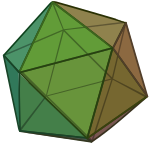| WikiProject | Portal | Assessment | Cleanup | References | Mergers |
| Watchlist (changes) | Article alerts | Article hits | Where did the articles go? |
Dungeons & Dragons

Dungeons & Dragons (commonly abbreviated as D&D or DnD) is a fantasy tabletop role-playing game (TTRPG) originally created and designed by Gary Gygax and Dave Arneson. The game was first published in 1974 by Tactical Studies Rules (TSR). It has been published by Wizards of the Coast, later a subsidiary of Hasbro, since 1997. The game was derived from miniature wargames, with a variation of the 1971 game Chainmail serving as the initial rule system. D&D's publication is commonly recognized as the beginning of modern role-playing games and the role-playing game industry, which also deeply influenced video games, especially the role-playing video game genre.
In 2004, D&D remained the best-known, and best-selling, role-playing game in the US, with an estimated 20 million people having played the game and more than US$1 billion in book and equipment sales worldwide. The year 2017 had "the most number of players in its history—12 million to 15 million in North America alone". D&D 5th edition sales "were up 41 percent in 2017 from the year before, and soared another 52 percent in 2018, the game's biggest sales year yet". The game has been supplemented by many premade adventures, as well as commercial campaign settings suitable for use by regular gaming groups. D&D is known beyond the game itself for other D&D-branded products, references in popular culture, and some of the controversies that have surrounded it, particularly a moral panic in the 1980s that attempted to associate it with Satanism and suicide. The game has won multiple awards and has been translated into many languages. (Full article...)
Selected article -
A character class is a fundamental part of the identity and nature of characters in the Dungeons & Dragons role-playing game. A character's capabilities, strengths, and weaknesses are largely defined by their class; choosing a class is one of the first steps a player takes to create a Dungeons & Dragons player character. A character's class affects a character's available skills and abilities. A well-rounded party of characters requires a variety of abilities offered by the classes found within the game.
Dungeons & Dragons was the first game to introduce the usage of character classes to role-playing. Many other traditional role-playing games and massively multiplayer online role-playing games have since adopted the concept as well. Dungeons & Dragons classes have generally been defined in the Player's Handbook, one of the three core rulebooks; a variety of alternate classes have also been defined in supplemental sourcebooks. (Full article...)
Selected image

Credit: Kevin McColl and User:Alan De Smet
WikiProjects
The Dungeons & Dragon WikiProject collaborates on improving all D&D-related articles on Wikipedia. WikiProject Role-Playing Games, its parent project, has a larger scope and covers all role-playing games. The Video games project also has a task force dedicated to Dungeons & Dragons-related video games.
General images -
Things you can do
 |
Here are some tasks awaiting attention:
|
Related portals
Main topics
Categories
Associated Wikimedia
The following Wikimedia Foundation sister projects provide more on this subject:
-
Commons
Free media repository -
Wikibooks
Free textbooks and manuals -
Wikidata
Free knowledge base -
Wikinews
Free-content news -
Wikiquote
Collection of quotations -
Wikisource
Free-content library -
Wikiversity
Free learning tools -
Wiktionary
Dictionary and thesaurus





























